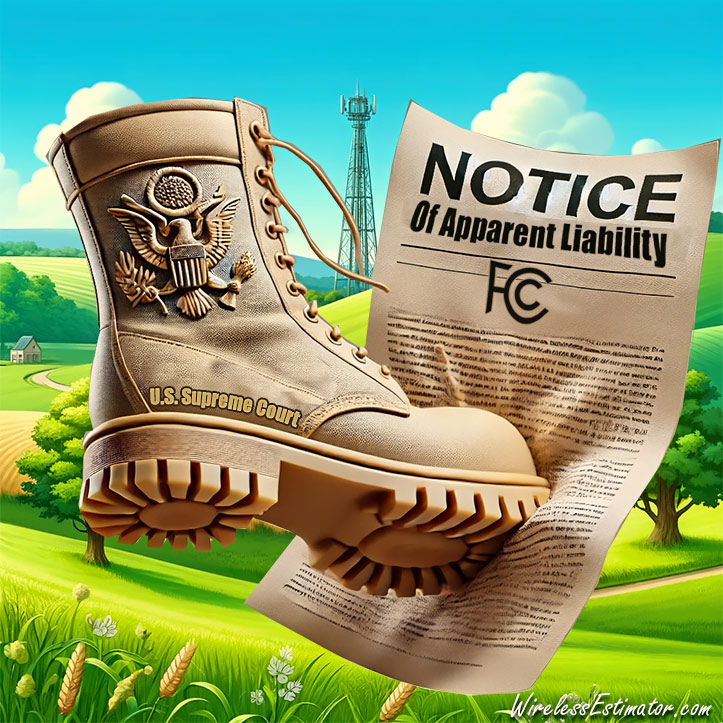
Currently, the FCC issues a Notice of Apparent Liability, allowing respondents to address charges through a relatively efficient administrative process. This streamlined approach facilitates prompt enforcement and resolution of violations. However, if the U.S. Supreme Court’s ruling is applied to the FCC, requiring jury trials for fines, the agency’s ability to quickly and effectively manage telecommunications violations could be severely hampered.
Yesterday’s U.S. Supreme Court decision in SEC v. Jarkesy could significantly alter the landscape of FCC enforcement actions. This ruling, which was passed with a 6-3 majority, could prompt extensive litigation for federal agencies, including the FCC, fundamentally changing how these agencies issue penalties and fines.
Current FCC enforcement process
Currently, the FCC issues a Notice of Apparent Liability (NAL) and a fine to individuals or companies violating FCC rules. These fines are directed into the U.S. Treasury and used as precedents or guideposts for determining the size of future enforcement fines and penalties. For instance, while the FCC issued multiple fines totaling $16 million in the past month, major mobile carriers were fined a total of $200 million for data violations in April. However, the four mobile operators said they intend to appeal the FCC’s decision, a process that is typically quicker than an appellate court reviewing a jury’s decision.
Potential changes due to the Supreme Court decision
The Supreme Court’s decision ruled that the Securities and Exchange Commission’s practice of imposing fines through administrative proceedings without a jury trial violates the Seventh Amendment. Chief Justice John Roberts authored this decision, emphasizing that such fines are a form of “monetary relief” that traditionally falls under the purview of common law and thus requires a jury trial. This ruling potentially impacts all federal agencies that utilize similar administrative processes, including the FCC.
Impact on FCC procedures
If the procedures used by the FCC for issuing fines are deemed unconstitutional under this new precedent, it could lead to the following significant changes:
- Jury Trials for Enforcement Actions: FCC fines and penalties may need to be adjudicated through jury trials. This shift could result in significantly larger judgments than those typically imposed by the FCC’s administrative process.
- Litigation Surge: The decision is expected to trigger a wave of litigation as individuals and companies contest FCC fines, arguing their right to a jury trial.
- Delay in Enforcement: Moving cases from administrative proceedings to jury trials could slow the enforcement of FCC regulations, leading to potential delays in addressing violations.
- Budgetary Implications: The FCC does not rely on fines and penalties as a source of revenue since the fines go into the U.S. Treasury.
Broader Federal implications
The decision also has broader implications for the administrative state, impacting several other agencies like the FDA, EPA, CFPB, and others that enforce regulations and impose penalties through administrative proceedings. Justice Sonia Sotomayor’s dissent highlighted the potential chaos and inefficiency this decision could introduce, calling it a “devastating blow” to government functions.
Sotomayor warned that the decision would affect many federal agencies — including the “Occupational Safety and Health Review Commission, the Federal Energy Regulatory Commission, the Federal Mine Safety and Health Review Commission, the Department of Agriculture, and many others.”
Justice Neil Gorsuch, joined by Justice Clarence Thomas, filed a substantial concurrence, stating that the Seventh Amendment, Article III, and the due process clause should collectively require a jury trial and conventional civil litigation before the government can deprive a citizen of money. They seem to reach the question the majority avoided, suggesting that the public rights exception applies only to “the collection of revenue, customs enforcement, immigration, and the grant of public benefits.”
The decision marks a significant shift in the regulatory enforcement landscape. For the FCC, this ruling could fundamentally change how it administers fines and penalties, necessitating jury trials for enforcement actions and potentially leading to larger or smaller judgments. As the legal landscape evolves, federal agencies, including the FCC, will need to adapt their enforcement strategies to comply with this new judicial precedent.

















